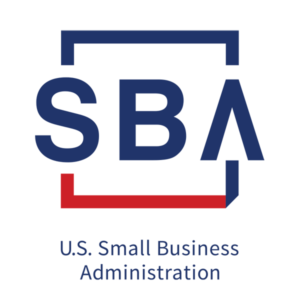Here is a breakdown of the provisions of the stimulus package passed by congress on Friday, March 27, 2020 that may impact you:
- Stimulus Checks on the way – $1200 per taxpayer, $500 per child
- This is a 2020 credit that is being advanced in the form of stimulus checks due to arrive in April.
- Whether you get the advanced credit is based on your 2018 or 2019 adjusted gross income. Anything above the following thresholds will quickly phase out your eligibility for the credit:
- $75,000 for single filers
- 112,500 for head of household
- $150,000 for joint filers
- If you are above these thresholds in 2018 or 2019, you may not get a check, but you will be eligible for the credit on your 2020 tax return next year if your income drops to the necessary ranges for 2020.
- If you were in range in 2019, but have a large income event this year (2020), you may have to pay the stimulus check back on your taxes next year. Boosts in income will likely be far rarer this year than what we have seen in the past.
- If you get your check in April, you won’t get the credit on your tax return for 2020 because you got it in advance this year. It’s now or next year, not both.
- Early retirement distributions are penalty free – The additional 10% penalty on early retirement plan distributions up to $100,000 will be waived for those under 59 ½ years of age who can prove they have been adversely affected by COVID-19 (e.g. being quarantined or furloughed.) This applies only to the 2020 year. If you plan to do this, please contact us prior to making the distributions to ensure you qualify for the waiver of the 10% penalty tax and other favorable treatments.
- Additionally, the distributions may be claimed as income split over a 3 year period.
- Funds can be recontributed back into the plan within those three years and the distribution will be considered a nontaxable rollover in the amount of the recontribution.
- Charitable deductions – $300 of cash contributions to 501 (c)3 organizations are available as a 2020 deduction even if you do not itemize your deductions on Schedule A. Restaurants may have the ability to donate inventory to non-profit organizations and receive charitable write-offs in excess of the money spent on the inventory.
- Net operating losses – The restrictions on net operating losses and other restrictions introduced by the trump tax reform are being significantly relaxed. We will be reviewing affected returns among our client base.
- Small Business Loans are available through the SBA, though they have been unable to process applications currently. This is likely due to the nationwide demand for these loans.
- The max loan amount is 4 x the average monthly (payroll + mortgage + rent + other debt payments.)
- The allowable uses are:
- Payroll, including sick leave and health insurance benefits
- Mortgage payments
- Rent
- Utilities
- Any other debt payments
- These loans are supposed to have minimal fees.
- They are 100% guaranteed by the SBA.
- SBA loan forgiveness –
- Forgiveness available up to the amount of payroll costs and debt payments incurred between 3/1/2020 – 06/30/2020 (4 months).
- Forgiveness gets reduced if 1) you reduce the number of employees (Full Time Equivalent) or the amount they are paid.
- Documentation required will be: 1) Payroll tax filings, 2) financial statements to verify payments on debt obligations; 3) whatever else they make up between now and when they open up the forgiveness.
- Employee Retention Tax Credits –
- If you take the SBA loan you do not qualify for the tax credit
- The credit is available to employers, including non-profits, whose operations have been fully or partially suspended as a result of a government order limiting commerce, travel, or group meetings. The credit is also provided to employers who have experienced a greater than 50% reduction in quarterly receipts, measured on a year-over-year basis.
- Provides a refundable payroll tax credit for 50% of wages paid by eligible employers to certain employees during the COVID-19 crisis.
- Payroll tax deferrals –
- You may be able to defer certain payroll tax payments until 12/31.
- If you get SBA loan forgiveness, you will not be eligible for the payroll tax deferral.
We are keeping an eye on the SBA programs made available by this bill and will let you folks know as additional details are made available.

 Accounting Tax Prep.:
Accounting Tax Prep.: